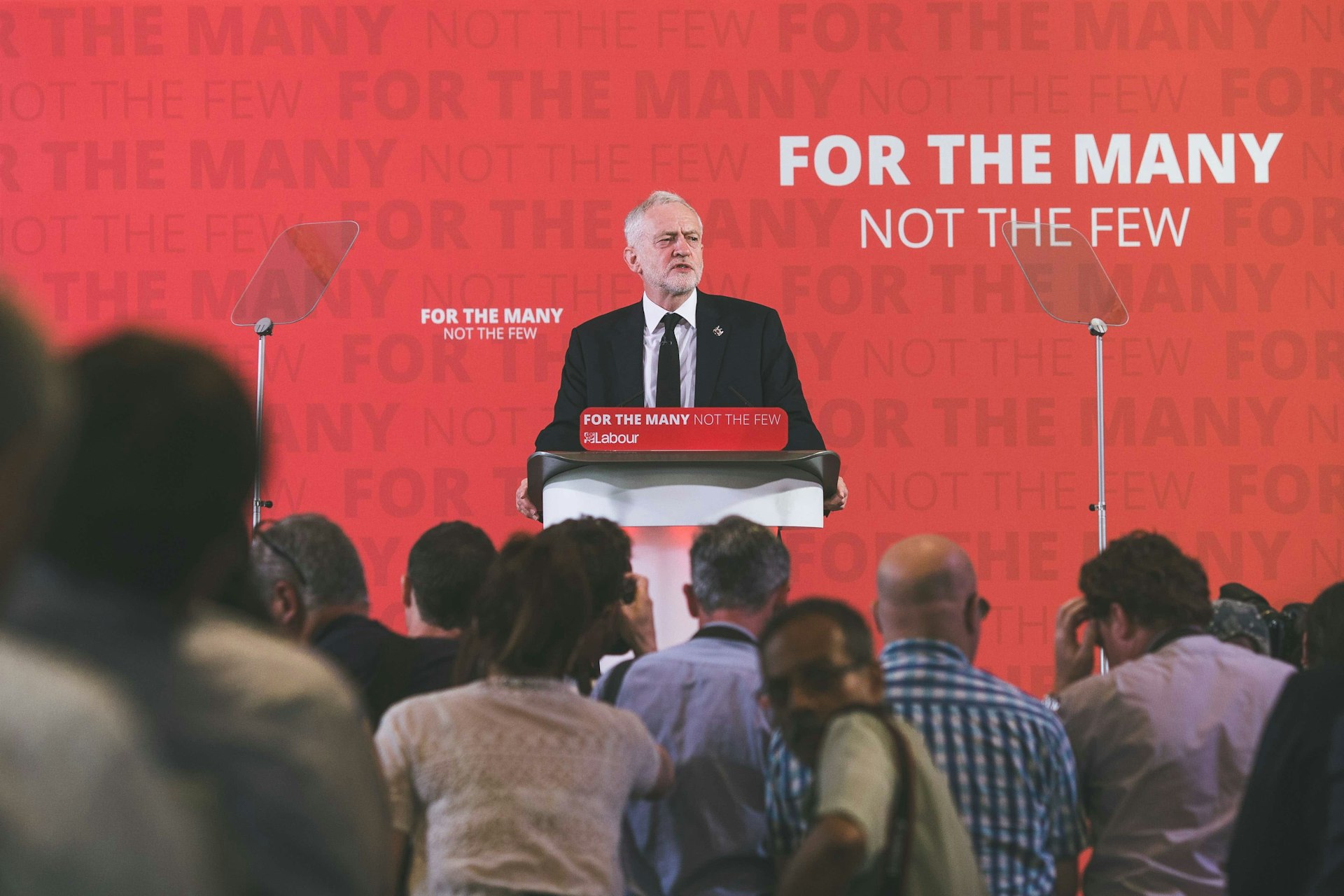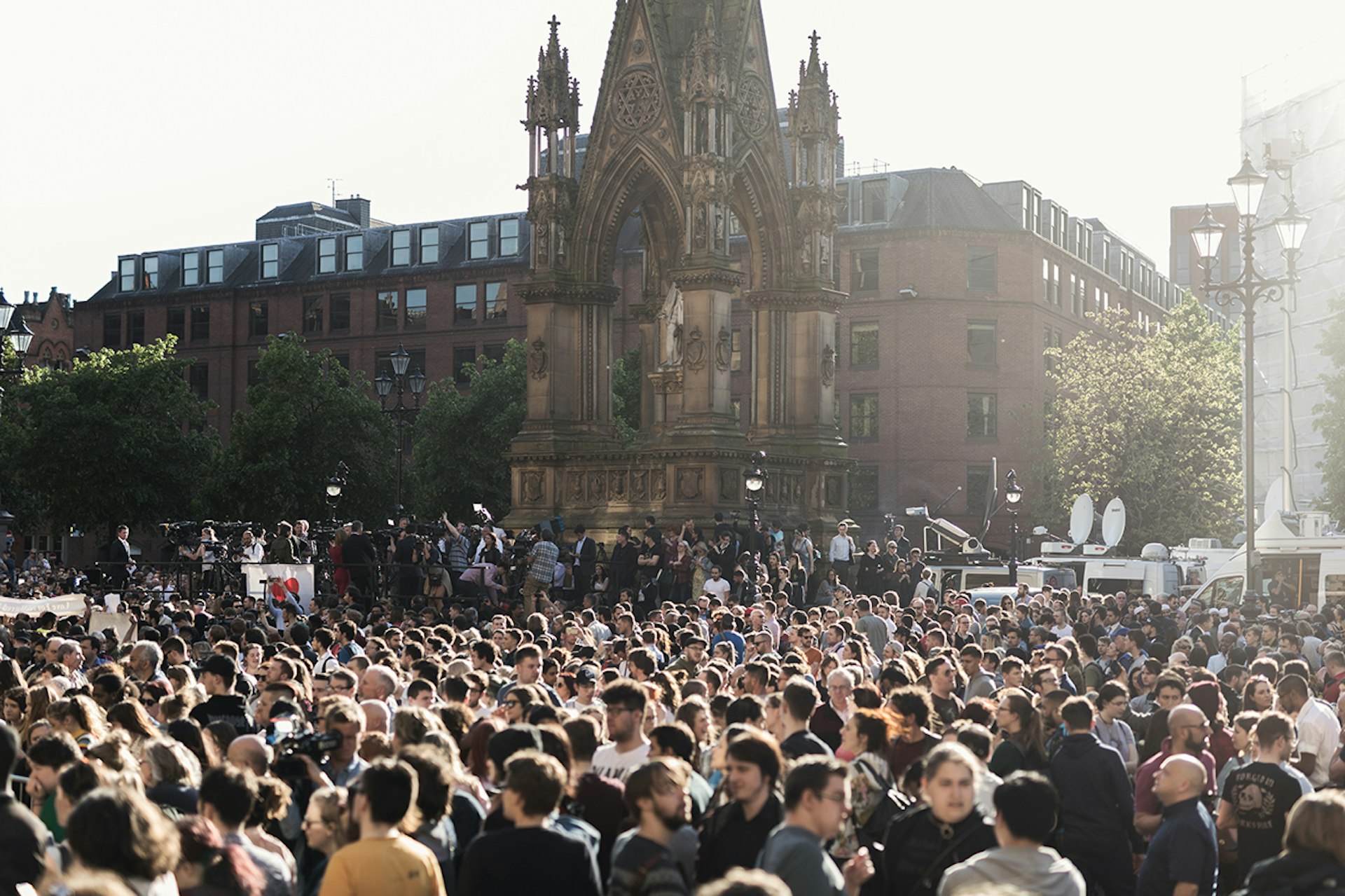
It's not pleasant but Jeremy Corbyn is right: British foreign policy has fuelled terror
- Text by Ellie Mae O'Hagan
- Photography by Theo McInnes
We can live in a world where there is less terrorism, and indeed we have done in the past. But creating that world necessitates difficult and honest conversations about why such appalling events happen in the first place. We need to ask ourselves what conditions lead to men like Salman Abedi, the perpetrator of the Manchester attack, killing dozens of innocent people.
It’s not to reason with them, nor to justify their actions, but to ensure they can’t arise again. And no, it’s not “anti-British” to do so.
It should be clear by now that distinguishing these acts from “British values” is a hollow and inadequate response, not least because the perpetrators of the two British terrorist attacks this year were born and raised on British soil. If we can be brave enough to ask questions about what creates terrorism, we can concern ourselves less about whether intelligence services are monitoring potential attackers – because there will be fewer people out there who want to be terrorists.
This morning Jeremy Corbyn gave a speech linking the growth in global terrorism to the War on Terror. He argued, “Many experts, including professionals in our intelligence and security services, have pointed to the connections between wars our government has supported or fought in other countries and terrorism here at home… an informed understanding of the causes of terrorism is an essential part of an effective response that will protect the security of our people that fights rather than fuels terrorism.”
Corbyn has some unlikely supporters in this regard: in 2015, Tony Blair accepted the Iraq War contributed to the rise of ISIS, the security services too.
And yet Corbyn is set to be pilloried for making such an argument. In fact, he was criticised before the speech was even delivered: Conservative security minister Ben Wallace accused Corbyn of “crass timing,” and yet again reverted to that superficial and meaningless argument that terrorists, “hate our values.” An explanation of what these arcane values are did not follow, which seems something of an oversight given one of the ostensible aims of the War on Terror was to spread British values to the Middle East.

A vigil in Manchester this week
Times columnist Iain Martin wrote a grossly indecent article before Corbyn’s speech was even announced, accusing the Labour leader of crying “crocodile tears” over the Manchester attack. These people would rather stick their fingers in their ears, sing God Save the Queen, and smear political figures they don’t like rather than ask tough questions about how we make terrorist attacks less common.
Corbyn will indeed be smeared, but his speech today is what leadership looks like. A leader starts debates about why society functions the way it does, and what we can do to improve it, even when those conversations are tough.
Those debates are not always easy or palatable, but they must take place. In other circumstances there might be slightly less urgency to start these conversations, but we’re in the midst of a general election campaign. The next five years and our futures are at stake.
As Obama put it after the Oregon shooting in 2015, “Well, this is something we should politicise. It is relevant to our common life together, to the body politic.”
Terrorism is already political: it is created out of politics, its perpetrators want to make political impacts. We simply cannot continue as though it occurs in a vacuum completely distinct from British society, British foreign policy – and yes, British values. We need to understand what role these factors play in the creating of a terrorist, because these are factors we can influence.
It’s true that terrorism has no single cause, but that doesn’t mean that the War on Terror isn’t part of a wider picture. It doesn’t mean that Britain shouldn’t look into a less calamitous foreign policy; not just to prevent terrorism, but to lessen the spread of violence, the body count, and the regional chaos that has beset countries we have cluelessly invaded over the years.
The issue of the role of British foreign policy in creating terrorism is a thorny one, there is no doubt. But the truth is we should have had it a long time ago.
Follow Ellie Mae O’Hagan on Twitter.
Enjoyed this article? Like Huck on Facebook or follow us on Twitter.
